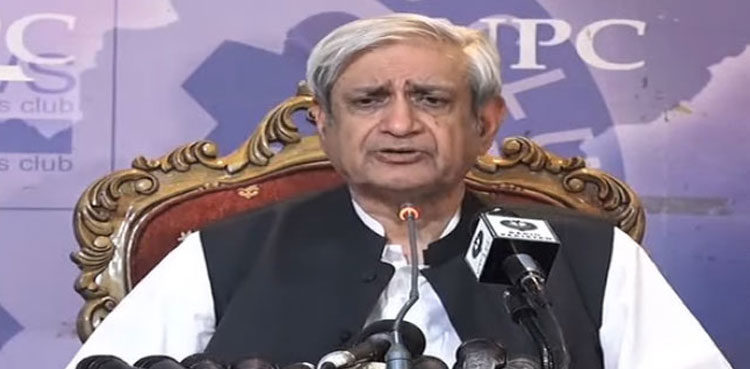Chinese support to help Pakistan grow crops other than wheat and multiply production: Food Minister

Gwadar Pro
Islamabad: Federal Minister for National Food and Security Syed Fakhar Imam has said that Chinese support will help Pakistan to grow crops other than wheat and multiply production.
Speaking as Chief Guest at a conference on “Food Security vis-à-vis Sustainable Agriculture in Pakistan: Policy Outcomes and Prospects” which was Jointly organized by Center for Global and Strategic Studies, Islamabad, Hanns Seidel Foundation Pakistan and MNS University of Agriculture, Multan, Imam mentioned that the next few years will be vital for the Pakistani agriculture sector as China-Pakistan Economic Corridor (CPEC)’s second phase focused on the agriculture sector.
“Pakistan needs to upgrade agriculture sector through use of modern technology. We can apply different methodologies on smaller areas and that can be replicated on larger scale upon success to multiply its benefits for the people of Pakistan. We have youth that is committed to take agro-economic sector to new heights. 60% of our total exports depends upon cotton and 70% of the edible oil comes from cotton,” he remarked.
The minister observed that Pakistan was blessed with the agro-economic zones. “We have one of the most extensive irrigation system in the world. Currently, we are using 1/4th of our geographical land for cultivation of five major crops which is still dominated by wheat. 38% of our population is employed in the agro-economic sector which increases the significance of this sector. Pakistan has incomparable taste and aroma of fruits which cannot be found in any other part of the world,” he maintained.
This year, he recalled, “we had record production in many crops and by next year more people would invest in this sector. We need to take interest in other crops too,” he opined.
Guest of Honor of the Conference Syed Hussain Jahania Gardezi, Provincial Minister of Punjab for Agriculture, said food security had always remained a threat to mankind.
“Various scientists and philosophers have also been warning about the threats related to food, agriculture security and climate change. Food security threat has always existed; however, the dimensions of this threat have changed due to other factors particularly climate change,” he elaborated.
Pakistan, he highlighted, was the 10th largest country to produce agriculture commodities and at the same time, “we are the 6th largest country by population. If we compare, the world food growth is not more than 1.5%. Therefore, the policymakers must come up with innovative ideas to bridge this gap.”
Gardezi pointed out that Pakistan was a signatory of Sustainable Development Goals and has committed to provide safe and healthy food to its citizens and “I hope that our policymakers, academia and scientist will put efforts to fulfill our nations requirements.”





